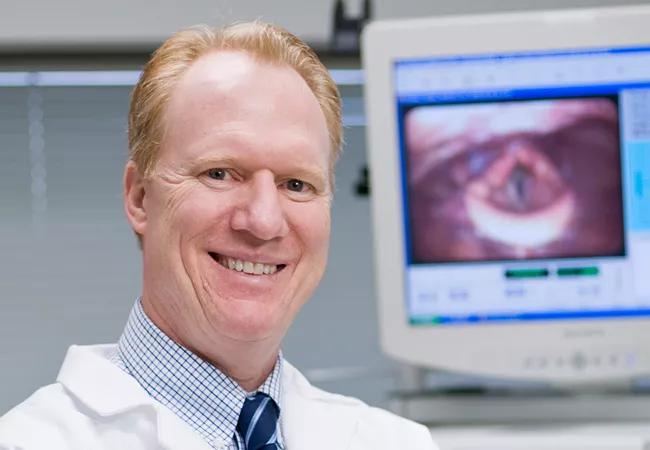Otolaryngologist and comic book collector

Michael Benninger, MD, planned to be a marine biologist but after graduation there were no such jobs to be found. He spent some time at his alma mater — Harvard — working as a varsity football assistant coach and announcing games on the university’s radio station.
Advertisement
Cleveland Clinic is a non-profit academic medical center. Advertising on our site helps support our mission. We do not endorse non-Cleveland Clinic products or services. Policy
“I soon realized that wasn’t what I was going to do long-term. My roommate was in med school and he suggested I apply,” says Dr. Benninger. “Of all of my areas of study, biology and anatomy were the most interesting, and medicine seemed such a natural extension of those interests.”
Today, the otolaryngologist is chairman of Cleveland Clinic’s Head & Neck Institute and a professor of surgery at the Cleveland Clinic Lerner College of Medicine of Case Western Reserve University.
What sparked your interest in your field?
The breadth of the specialty. You deal with everything from removing wax from someone’s ears to major head and neck cancer cases. Then I became interested in voice and voice disorders and that’s a small specialty of ENT. I go to national and international meetings and we all know each other.
Why do you choose to practice at Cleveland Clinic?
I really think we do magical things here at Cleveland Clinic. In particular with my patients, 20 percent are flying or driving more than five hours to get here. Many of them see us as their last hope. We give them a sense of optimism when they may feel that they have exhausted every possibility.
There are moderate cases right next to people with complex issues and we can provide care at every level; there is consistency to all of our specialties. I know that I can send any patient to any specialty here and they will receive the same level of care as they would with me and my team.
How do you keep the joy in medicine?
In large part, it’s being in an organization with a tripartite mission [provide better care of the sick, investigation into their problems, and further education of those who serve]. Being in a place like this, where you can participate in all three parts of our medical mission – that keeps you going.
Advertisement
Also, being in the OR for me is like a mental health day. It’s a combination of being a doctor, mechanic and a carpenter all at the same time. I don’t know that I would be as happy if I was not a surgeon.
Advice you would give to your 20-year-old self?
Listen a little bit more, particularly before you speak. The times I can remember where I kicked myself after were when I responded too quickly. I do things a lot differently now. When I have a complex email or call to make, I let it sit there for a little while. And before I respond I may ask someone else, “Does this sound right?”
In addition, medicine cannot be the only thing in your life. There has to be a balance between work, outside activities and family.
Something your colleagues may be surprised to learn about you?
I collect comic books. I haven’t purchased them for a long time but I’m starting to go back through my collection and I’ve got my nephew interested. I have about 13,000 and I have probably read 98 percent of those. I’m putting them into better bags and I have sent off about 45 to be graded.
Advertisement
Advertisement

Analysis of HNSCC patients shows HPV status to be predictive of higher abundance of oncobacteria within the tumor

Case study illustrates the potential of a dual-subspecialist approach

Evidence-based recommendations for balancing cancer control with quality of life

Study shows no negative impact for individuals with better contralateral ear performance

HNS device offers new solution for those struggling with CPAP

Patient with cerebral palsy undergoes life-saving tumor resection

Specialists are increasingly relying on otolaryngologists for evaluation and treatment of the complex condition

Detailed surgical process uncovers extensive middle ear damage causing severe pain and pressure.